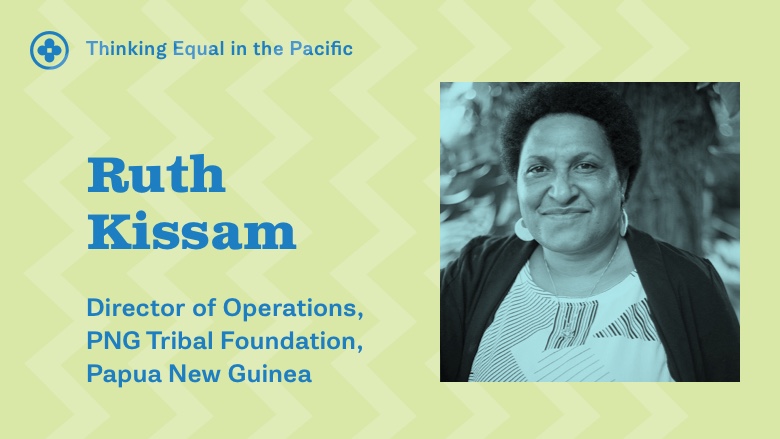During my second year of studying law at the University of Papua New Guinea, my Mum fell sick. I pulled out of my studies to take care of my three younger brothers and my Dad. I felt some pressure to get married and provide bride-price for my tribe, as culture would have wanted it. But this was not on the cards for me.
Being a surrogate mum didn't leave much time for full-time education, but I had enough time on my hands to work with youth in my church and marginalised communities, including women and people living in settlements. I became a community organiser and loved every aspect of it. I worked with border communities to build and maintain their airstrip, refurbish their aid-posts and build classrooms.
In settlements in Mount Hagen in 2006, we ran a sports program called Sanap Wantaim, to share information about HIV and AIDS. We arranged mentorship programs for young girls in 2009 called Women of Wisdom, and we got community members to police themselves for safe resilient communities through a law that I drafted, the Gutpela Sindaun Community Law.
Through my community engagement I came across the body of the late Kepari Leniata and claimed her and buried her. This began my Human Rights Activism in the space of sorcery-accusation related violence which has led to my work with PNG Tribal Foundation.
What inspires you to get up in the morning?
I am my Father’s daughter. As a Pastor, he didn’t want me to waste a single day, so he instilled in me the appreciation for time and life. He used to tell me that life is like a day. The day dawns with the sunrise, the day hits the peak with the sun at its zenith and then the day draws to a close with the sun setting. So it’s life in its cycle. I have only one chance to make a difference in someone’s or my own life, so I don’t waste it. I know my day and plan well and then go out and execute my plans with intention.
What drives you?
Plain and simple gratitude for the life I have. I have so much to live for. I have my large Engan family, a daughter, colleagues, my work, my faith in God and a zest for life itself. And because I have been given so much, I give back so that it keeps me from drowning in all my ‘getting’.
What are your hopes for the future?
I know where I come from and that is being a Melanesian woman, a Papua New Guinean and an Engan one at that. That is my past, but it is also my present and my future. I am passionate about my culture but I am also a modern Papua New Guinean. I want to have my space beside my brothers. I want to be respected for the value I add to my work, family and society but also respect the space that belongs to my brothers.
I want a future for PNG where there is gender appreciation; where men appreciate their women for their unique intuitive abilities and their sense of justice, and where women respect their men for their strength and the ownership of their responsibilities. It’s a hard place to be a man these days. I think we can learn from other societies, but more so from our past where our ancestors respected, valued and loved their women. I hope for a future where my people respect each other’s boundaries and acknowledge and appreciate the value that each man and woman add to society.
Do you have a favourite quote or saying?
You only live once, make it count!
Where do you see Papua New Guinea and women in PNG in 25 years?
I foresee more women in the workforce, in Parliament and having more say in the decision making of this country. And I see this country thriving at the back of it. There’s no two ways about it. PNG men have a ‘big man’ attitude. PNG women have a ‘build society’ attitude.
We have to build on our strengths and our women are our greatest assets. If we capitalize on them through legislative reforms, we will benefit enormously from it.
What change would you like to see that could bring greater equality for women in Papua New Guinea?
It will only be through legislation. I would like to see reserved seats for women in parliament. We can learn from others and build our own journey from there to achieve the kind of results we want. Having women in parliament is good for the country, because it balances the equation.
If you could use one word to describe women in the Pacific what would it be?
Advancing.
What about in Papua New Guinea?
Resilient.
**The views expressed in this article do not necessarily represent the views of the World Bank Group and its employees.

